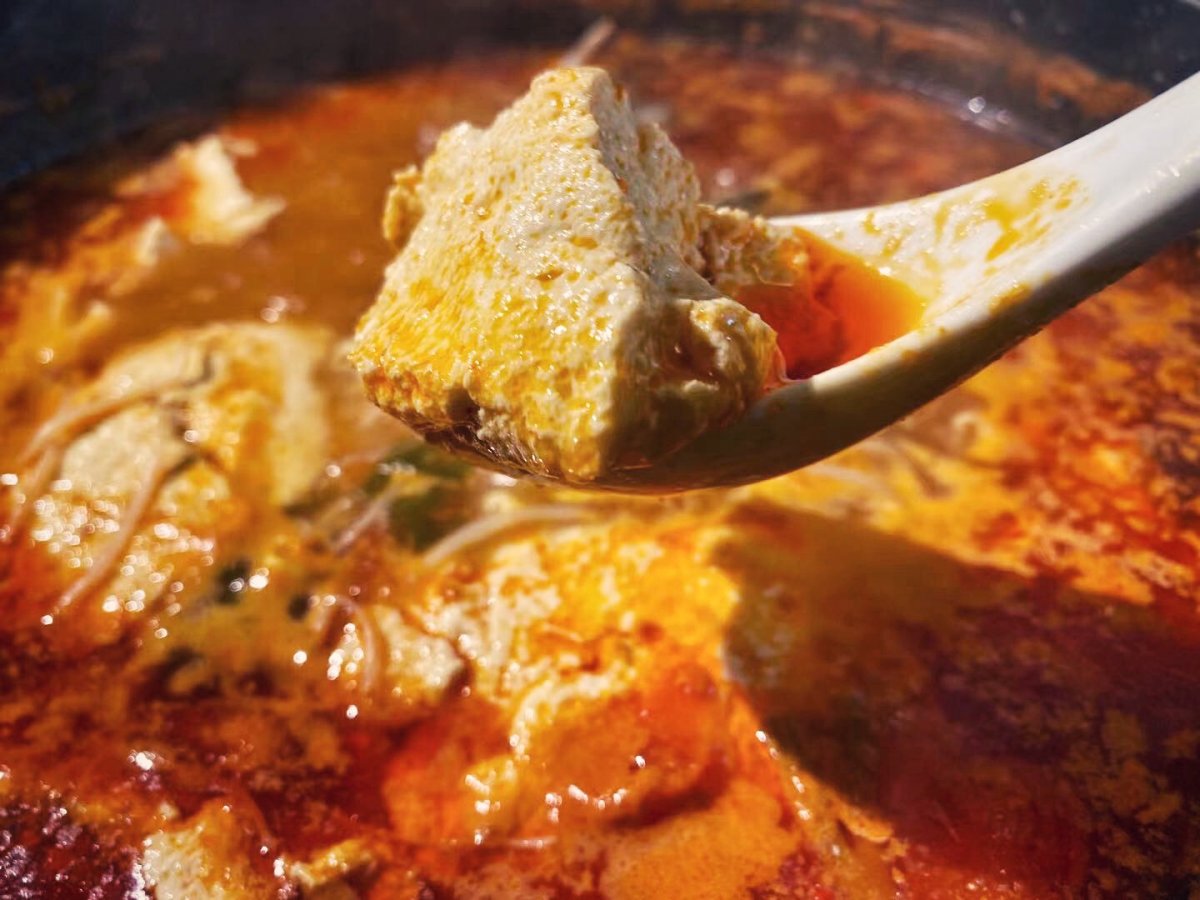Local Gem: Sour Soup Fish? Dumplings with Pickles? Taste it All at this Guizhou Joint
Local Gem is an exploration of Beijing’s diverse palate. Get out of your comfort zone and try something new! To share your own neighborhood pride, please contact us via editor@thebeijinger.com
Every chilly winter night, I'm grateful to my ancestors for inventing the hot pot. They not only make this harsh season bearable but more enjoyable as well.

You may be familiar with Chongqing hot pot, with its boiling chili broth that permeates entire rooms with its spicy scent, or Beijing bronze hot pot, with its special pointy turret. However, across the vast land of China, there are more hot pot variants than you could possibly imagine. Today, I'd like to introduce you to the hot pot of Guizhou, a province in China's southwest, home to various minorities and ingredients.

Here, chefs have mastered the art of fermentation, and go by the saying “三天不吃酸,走路打蹿蹿 sān tiān bù chī suān, zǒulù dǎ cuān cuān” “Three days without sour food prevent one from walking straight". They take their pickles and fermented spices seriously down in Guizhou, so much so that they use it in their regional hot pot, lending the boiling concoction a lovely scent.

Our journey to Guizhou beings at Ritan UpStreet, a short alley where a variety of restaurants showcasing diverse culinary styles can be found. After taking in the neon signs on the ground floor, hitch a ride on the elevator to the 3rd and enter 小红炉 Xiao Hong Lu. If you arrive there around dinner time, chances are you'll have noticed an amazing fragrance dancing through the air that smells like a mix of ginger and lemongrass.
This scent gets stronger based on your proximity to a Guizhou creation: red clay hot pot. Litsea oil added to these pots works its magic to create such a scent. For those who are fans of southwest Chinese cuisines, the presence of litsea oil is like an announcement declaring the star of tonight's dinner: 酸汤鱼 suān tāng yú Fish in Sour Soup.

Hmmm, simply writing the dish's name makes my mouth water. It's a dish that will carve its flavor into your very DNA. As for the fish you should choose for Fish in Sour Soup, go for long snout catfish, a species native to China known for its tender meat and fewer bones than most freshwater fish. When cooked in the soup, its smooth skin protects its meat from breaking down, locking its juices inside for a perfect balance between sour soup and sweet meat.

But fish isn't the only star of the Xiao Hong Lu show. Indeed, you can make things even more playful by adding a number of ingredients to your pot. Among these options, my favorites would have to be handmade 豆花 dòuhuā soft bean curd. This humble-looking food might not impress at first sight, but once you've had your first bite, only then will you be able to comprehend how extraordinary it is.
No matter how long it's been left in the boiling soup, soft bean curd is able to maintain its solid state, preventing itself from dissipating or dissolving. However, when you place it in your mouth, you can feel your teeth sinking right on into it, like a warm knife cutting through butter. Not to mention the magical combination of the earthy and slightly nutty fragrance of the curd with the zesty broth. You can also find this ingredient in the palatable 豆花鸡 dòuhuā jī bean curd chicken pot or soothing 豆花面 dòuhuā miàn bean curd noodles as well.

There are yet more dishes here to be savored. One example is 酸菜炒汤圆 Suāncài Chǎo Tāngyuán sweet dumplings fried with pickles. To the surprise of many, this quirky duo actually gets along quite well on the plate. The fried sweet dumplings oozing their black sesame fillings are to die for, and the spicy pickles and chili lend the dish an entirely new dimension of flavor. It's an excellent choice to let your tongue and stomach take a break from the heat of the sour soup.
Another treat here is a bit of an oddity that's not for the faint of heart. No, it isn't the head or intestines of an animal, but a special kind of herb. It's one which is quite divisive, as some can't go a meal without it, while others hate it to the point that a single bite can cause them to lose their lunch. This notorious herb is 鱼腥草 yú xīng cǎo (literally "fish grass"), or 折耳根 zhé ěrgēn as it's known by folks in the southwest.

This herb, which some describe as smelling like rotting fish left in a stagnant pond for days on end, is typically used for medicine rather than cooking up north. But for those in the southwest, especially Guizhou, it's a household item that local residents enjoy in appetizers, soup, and even fried rice. Fish grass must be tried to be understood, though, so don't be afraid! Simply take a breath and take a bite!
You can't call yourself a true Chinese foodie if you haven't tried Guizhou cuisine. Chefs from all over this whimsical province can always manage to amaze. This winter, why not forgo Haidilao and instead opt for some red clay hot pot at Xiao Hong Lu? You won't be disappointed.
Xiao Hong Lu 小红炉
3rd floor of No.39 Ritan UpStreet Chaoyang District
朝阳区日坛上街39号3层
Read: Local Gem: Stinky Yet Tasty, The Temptation of Smelly Snail Noodles And Why I Fell For It
Images: Zeus Zou







